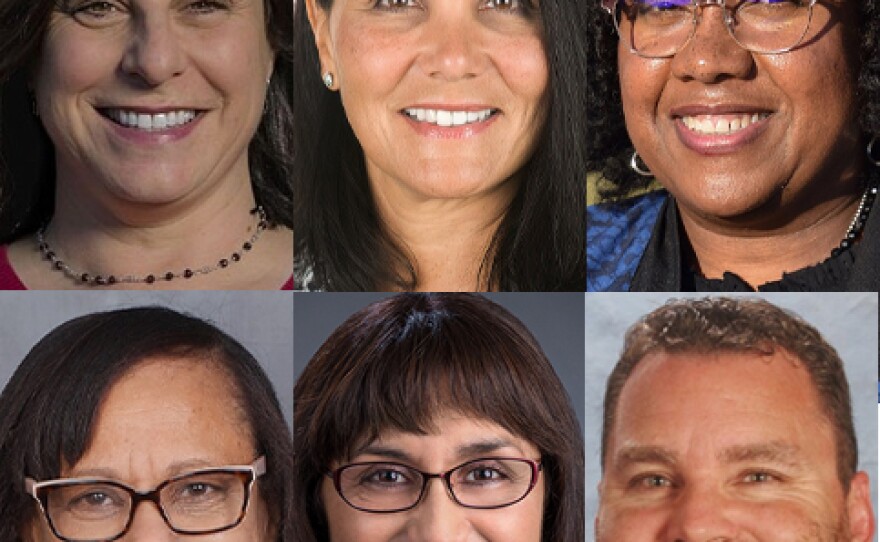This story has been updated to reflect a correction.Being a school board member is a difficult job even in the best of times. The responsibilities include managing a byzantine budget, listening to disgruntled parents and making decisions that have far-reaching impacts on the lives of students.
Now we have a global pandemic that has upended nearly every aspect of public education and a reckoning over racial justice that has forced educators to address the uncomfortable question of who gets left behind in our classrooms.
It is against this backdrop that six candidates are vying for three seats on the San Diego Unified School Board, which serves 100,000 students.
All the candidates agree that reopening schools should be based on science and expert opinions rather than politics. They also agree that students from historically marginalized backgrounds need to be uplifted, a mission that has been injected with new urgency since the national and local protests following the killing of George Floyd at the hands of Minneapolis police in May.
Yet, despite this common ground, all have their own priorities regarding how to address the pandemic and make sure student voices are heard.
Subdistrict A
This subdistrict covers Clairemont, Mira Mesa and University City, two candidates are competing to replace current board president John Lee Evans, who isn’t seeking re-election.
Sabrina Bazzo currently works for a nonprofit that provides training for physicians. A long-time parent volunteer in the district, she most recently served for six years as the Mira Mesa High School Foundation President until 2018.

As the district continues distance learning into 2021, she hopes to pilot creative solutions to mitigating learning loss. She proposed expanding a peer tutoring program that she helped start at Mira Mesa High.
“We’re up to about 30 tutors and we’ve reached about 50 families or so,” Bazzo said. “It’s a good example of something we can replicate in the district that’s totally free of charge. We’re trying to keep it volunteer and we’re really trying to identify those students who really need the resources the most.”
Bazzo said the district needs to rely on public health experts rather than rushing to reopening schools.
RELATED: SD Unified, SDSU Taking Baby Steps Toward In-Person Learning
Bazzo’s opponent is Crystal Trull, a professor of nonprofit management and also a long-time parent volunteer in the district. She said her experience consulting for nonprofits makes her uniquely qualified to bring accountability and transparency to the district. She said she’s been disappointed by the lack of open communication between the district and parents about why schools have remained closed for so long. She said the district could have explored both in-person and online options.
“They’ve just been making a lot of decisions and having a lot of discussions behind closed doors,” Trull said. “They tell us little things here and there, but I think the parent engagement piece has really suffered in terms of communicating.”
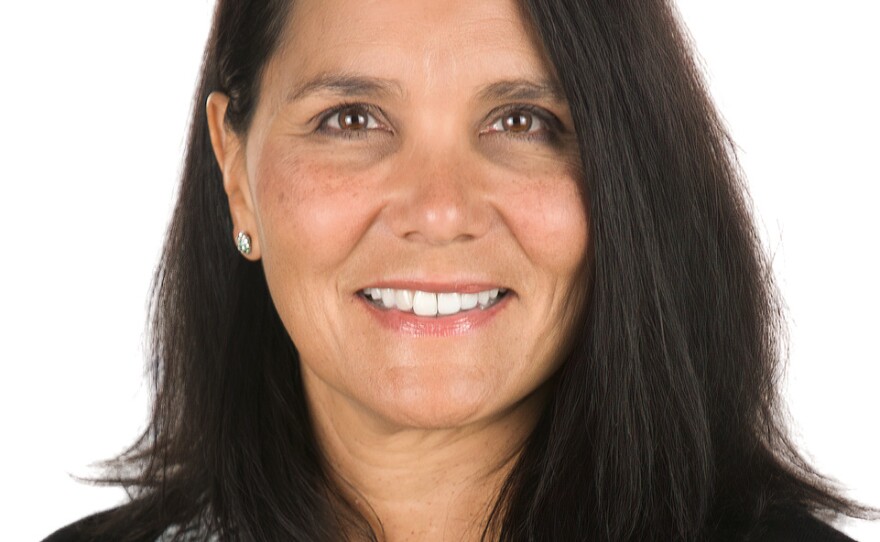
Bazzo said the district could promote racial justice in its classrooms by investing more in restorative justice and implicit bias training to reduce disparities in suspension and expulsion rates among Black students.
In response to local students calling to defund school police, both Bazzo and Trull said they were reluctant to completely dismantle San Diego Unified’s police department.
“There are internal issues with schools but there’s also danger from the outside,” Bazzo said. “That’s where I think it’s important to have some form of school police. But that being said, I think there’s a lot of places for reform.”
Bazzo said she would support getting rid of uniformed officers on campus and rebranding law enforcement as community partners that could protect students while helping historically discriminated student groups feel safer.
Trull said the time for complacency has passed. She said implementing an ethnic studies requirement was a good start for the district, but she said it should have happened a long time ago. She did not have specific proposals for reforms surrounding racial justice but said she would start by hearing input from students and parents.
“The district needs some help from the community and from families,” Trull said. “We cannot do this in a vacuum.”
Subdistrict E
In this subdistrict, LaWana Richmond is challenging incumbent Sharon Whitehurst-Payne. It serves a disproportionate number of the district’s low-income students and students of color.
Richmond said she’s running because the current leadership has failed to communicate with families and close the achievement gap in the subdistrict.
“I couldn’t stand on the sidelines,” she said. “I care about kids and their families, and their interests need to be at the forefront.”
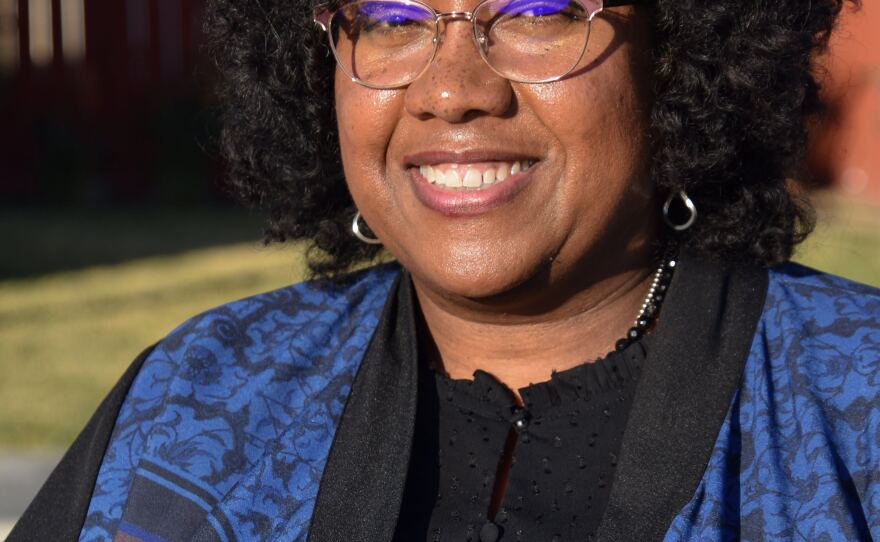
Richmond has a doctorate in educational leadership and currently works as an organizational development manager at UC San Diego. She said her experience in the foster care system and as a teen mom gives her the first-hand experience needed to serve the district’s most vulnerable students.
“In times like this, when you have enormous disruption in any type of system, it’s an opportunity for exponential growth and progress,” Richmond said. “You learn things you never would have found out in a condensed and short period of time because you have no choice but to learn, unless you choose not to.”
Whitehurst-Payne, who’s vying for a second term, says as a board member she made sure the district acted swiftly to distribute food and devices when schools first shut down.
“We wanted to get learning devices out to all our children,” she said. “We know our schools, and we knew that in some communities there’s a digital divide.”
RELATED: San Diego Unified Grappling With Significant Drop In Kindergarten Enrollment
Whitehurst-Payne spent decades in the district as a math teacher. She directed a training program for elementary school teachers. She also served on the board of trustees for the California State University, San Marcos’ Foundation.
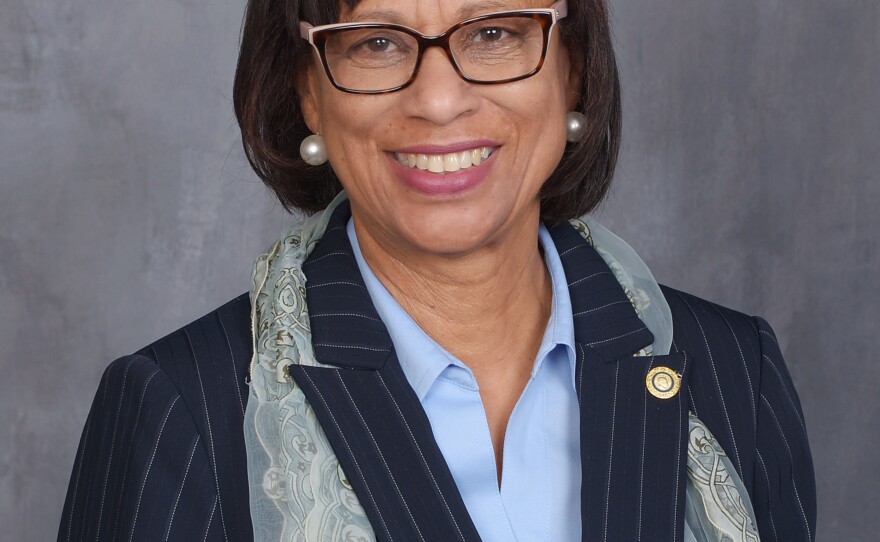
Apart from COVID-19 relief efforts, Whitehurst-Payne said her primary achievement has been improving training for special education teachers.
“I have made a difference on this board. I’ve been able to identify some of the critical issues that would impact District E’s African Americans and Latinos just across the board,” she said.
Both Whitehurst-Payne and Richmond said they would want to eliminate regular police presence on campuses.
“If we had a school counselor instead of a police officer down the hall, the school counselor might be the first person who’s called,” Richmond said. “I don’t think we need to have police officers stationed at schools.”
Whitehurst-Payne said the district has already been taking steps in reducing the size of its police department. She said she’s committed to continuing on the path of relying more on mental health services rather than on law enforcement to address student behaviors.
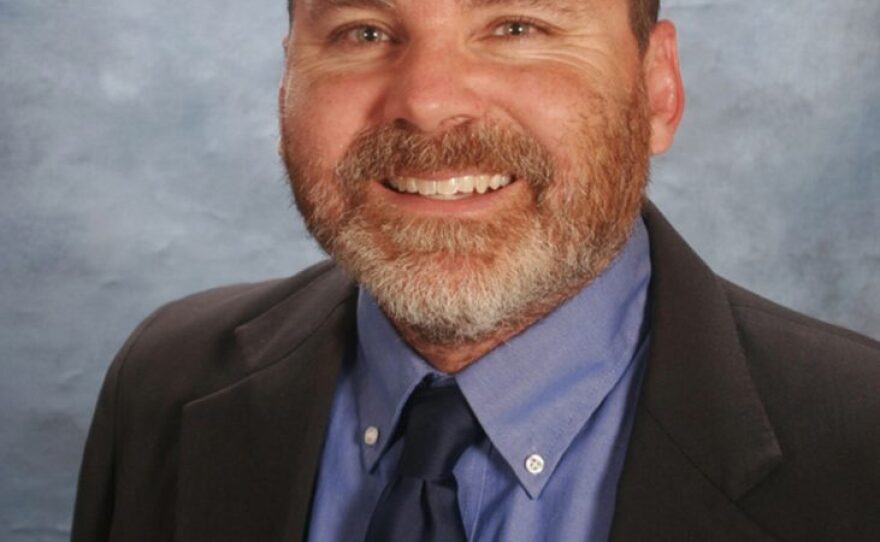
“Policing is an external function,” she said. “If someone is coming onto campus we need security there to identify those folks who are coming to hurt people on campus.”
Subdistrict D
This subdistrict serves Downtown San Diego as well as the neighborhoods of North Park, Barrio Logan and City Heights. The incumbent is Richard Barrera, a labor-rights and community advocate. Barrera is currently the board vice president and has served since 2008, running unopposed in both 2012 and 2016. He said the work he’s done helped prepare the district for COVID-19.
"Our district has become a much stronger district with much better outcomes for students, much more equitable outcomes for students, and I think we’re much clearer about what we need to do moving forward," Barrera said.
Barrera’s is challenged by Miramar College professor and long-time school counselor Camille Harris who ran against him in the primary as a write-in candidate. She said the COVID-19 crisis in education gives leaders an opportunity to steer the district in a new direction.
"These kiddos are suffering, parents are suffering, parents who have to work from home.," Harris said. "I have people who I know who are two-parent families and they have to teach their students and monitor them, and they’re in charge of their education."

